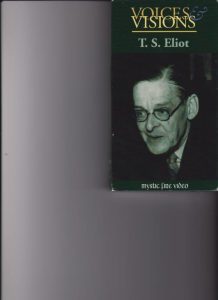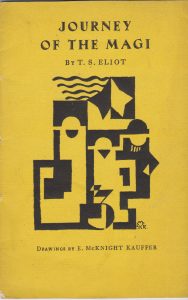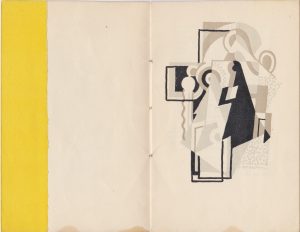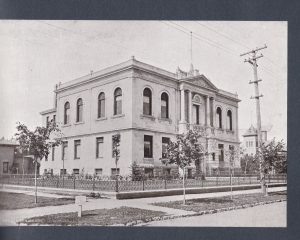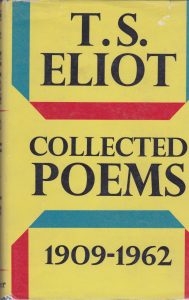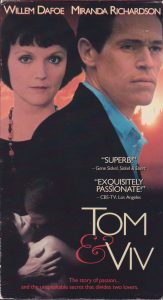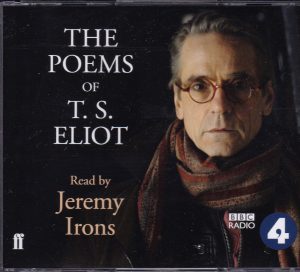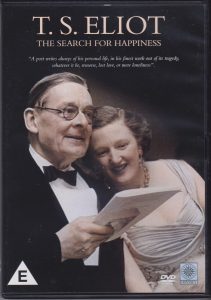began in 1967 in our grade 12 poetry unit back at SHCI. Most of the poems in our anthology were classics and older poems, but one modern one stood out. It was Eliot’s “Journey of the Magi”.
“‘A cold coming we had of it, Just the worst time of the year For a journey, and such a long journey: The ways deep and the weather sharp, The very dead of winter.'”
Out of the blue, the voice of one of the wise men complaining in what was my first encounter with free verse. Years later, I would acquire the illustrated chapbook (above) that captured more of the mystery of the 1927 poem.
The following summer on a steamy Winnipeg August evening, I journeyed to the old William Avenue main city library (below).
Anyway, that summer evening I walked upstairs to find the poetry section and found the colorful book (below), opened it and started reading….
The Love Song of J. Alfred Prufrock
Let us go then, you and I, When the evening is spread out against the sky Like a patient etherised upon a table”
It was like opening my secret mail and inner thoughts and feelings at age 17, on the cusp of 18. Perfect timing. The alienation, the boredom of “Journey” carried forth in this longer 1917 classic.
“Portrait of a Lady” echoed Simon and Garfunkle’s “The Dangling Conversation” radio hit of the day. This and other poems by the same guy mentioned by critics in conjunction with Bob Dylan’s lyrics from his Blonde on Blonde album and songs like “Ballad of a Thin Man”. (In my 1990 Fringe show, I would imitate Dylan singing the “Midnight” song bringing together Dylan and Eliot in an unexpected way.)
In first-year university, his poem “Preludes” was on the introductory English course final exam:
“The winter evening settles down With smell of steaks in passageways”
Again, the striking, memorable, modern-feeling imagery so distinctly different from older, more romantic poetry.
I can remember one summer morning after a rainfall, ‘working’ the end of the night shift at Winnipeg General, about 5 a.m., sitting in the dark empty lounge at the end of a 2nd floor ward, looking out onto the wet streets and neighborhood with the sun coming up and reading “Preludes”, realizing how much the poem reflected my life and sensibility.
Eventually. I would study “The Waste Land” in the third year of my BA in a course on 19th and 20th century literature (possibly the most influential English course I ever took, taught by short, young, mustached prof who held court cross-legged on a desk at the front of the class):
“April is the cruellest month, breeding Lilacs out of the dead land, mixing Memory and desire, stirring Dull roots with spring rain”
Poetry as spiritual condition. Which is reflected in other Eliot poems (I encountered in my 30s) like “Ash Wednesday” and “Four Quartets”–the latter the mysterious spiritual poems inspired by Beethoven’s late quartets that the English people identified with during WW2.
“Time present and time past Are both perhaps present in time future, And time future contained in time past.”
Eliot was quite the interesting guy: working at Faber and Faber, there turning down two (!) of Orwell’s books; dealing with a mentally-ill first wife Vivienne (featured in “The Waste Land” and memorably filmed in Tom and Viv); writing a poetic play about the assassination of the archbishop of Canterbury–Beckett; and writing a book of celebrated cat poems which later, postumously, became a popular Webber musical.
Two recent works are respectful tributes to his life and work. One is Jeremy Irons’ excellent readings of his poems.
The other is a helpful, informative DVD documentary, T.S. Eliot: The Search for Happiness.
(pictured with Valerie, his second wife)
Looking back, I realize, that I taught “Preludes” and “The Love Song of J. Alfred Prufrock” to grade 12 students, and ended up with a tee shirt that says “Do I dare disturb the universe?” Suffice to say, Eliot has deeply influenced me, my sensibility, my thinking, personal poetry and life. For me, he remains a significant personal literary hero.

